Introduction: Pollution Certificate
Is there any pollution certificate required for my business? This question is often asked by the owner of the business. In fact, when they choose to open a new factory or heating plant, they will be required to have a Pollution Certificate License. If they do not have it, they will be fined and even shut down. The Pollution Certificate License is a license that lets you work for your manufacturing or production or any work.
Table of Contents
- Introduction: Pollution Certificate
- The Pollution Control Board (PCB)
- Type of Pollution Certificate License For Business
- Range of Pollution for Business According to Categorisation
- List of Red, Orange, Green, White Category of Industries for Business
- Who Needs a Pollution Certificate License?
- What are the Reasons Behind a Pollution Certificate License for Business?
- Documents Required For CTO/CTE Pollution Certificate for Business
- Conclusion
--------------Blog Contact Form-------------
The Pollution Control Board (PCB)
The Pollution Control Board (PCB) issues NOC certificates to industrial units that conform to the pollution control norms and standards set by the government. Over the past few years, this process has undergone many changes. The PCB has expanded its monitoring and surveillance activities to keep a closer watch on polluting industries.
Type of Pollution Certificate License For Business
There are two types of consent that business owners must obtain:
- Consent to Establish (CTE) – The first step of permission necessary from the Pollution Control Department in order to open a business. A business must meet all legal requirements, including all required standards and documentation, in order to get consent to establish.
- Consent to operate (CTO) – This is the second stage of approval required for an entity operating in India. All industrial establishments must first apply for Consent to Establishment, after that they will apply for CTO.
Range of Pollution for Business According to Categorisation
The following criteria for the categorization of industrial sectors based on the 'Range of Pollution Index' have been finalized.
- Industrial Sectors with a Pollution Index of 60 or higher - Red category
- Industrial Sectors with a Pollution Index score between 41 and 59 - Orange category
- Industrial sectors with a Pollution Index score of 21 to 40 - Green category
- Industrial Sectors with a Pollution Index score up to 20 - White category
List of Red, Orange, Green, White Category of Industries for Business
|
List of Red Category of Industries |
|||
|
S. No. |
Industry Sector |
S. No. |
Industry Sector |
|
1 |
Yarn / Textile processing |
39 |
Isolated storage of hazardous chemicals |
|
2 |
Chlor Alkali |
40 |
Automobile Manufacturing (integrated) |
|
3 |
Ship Breaking |
41 |
Hazardous waste recycling (Spent cleared metal catalyst ) |
|
4 |
Oil and gas extraction |
42 |
Lubricating oils and grease mfg. |
|
5 |
Metal surface treatment |
43 |
DG Set (> 5 MVA) |
|
6 |
Tanneries |
44 |
Carbon black & allied |
|
7 |
Ports /harbor/jetties |
45 |
Lead acid battery |
|
8 |
Synthetic fibers |
46 |
Phosphate rock processing |
|
9 |
Thermal Power Plants |
47 |
Power generation plant |
|
10 |
Slaughter house |
48 |
Hazardous Waste Recyclers (Spent catalyst) |
|
11 |
Aluminium Smelter |
49 |
Chlorinated hydrocarbons |
|
12 |
Copper Smelter |
50 |
Sugar |
|
13 |
Fertilizer (basic) |
51 |
Fibre glass production |
|
14 |
Integrated Iron & Steel |
52 |
Fire crackers |
|
15 |
Pulp & Paper ( bleaching) |
53 |
E-Waste Recyclers |
|
15 |
Zinc Smelter |
54 |
Milk and dairy products |
|
17 |
Oil Refinery |
55 |
Phosphorous |
|
18 |
Petrochemicals |
56 |
Pulp & Paper |
|
19 |
Pharmaceuticals |
57 |
Coke making |
|
20 |
Pulp & Paper ( Large-Agro + wood), |
58 |
Explosives / detonators |
|
21 |
Distillery |
59 |
Paints varnishes, pigments |
|
22 |
Railway locomotive work shop/ service centers |
60 |
Organic Chemicals |
|
23 |
Airports and Commercial Air Strips |
||
|
24 |
Asbestos |
||
|
25 |
Basic chemicals |
||
|
26 |
Cement |
||
|
27 |
Chlorates, per-chlorates & peroxides |
||
|
28 |
Chlorine, fluorine, bromine, iodine |
||
|
29 |
Dyes and Dye- Intermediates |
||
|
30 |
Health-care Establishment |
||
|
31 |
Hotels (Big) |
||
|
32 |
Lead acid battery -recyclers |
||
|
33 |
Waste electrical and electronic recyclers |
||
|
34 |
Glue and gelatin |
||
|
35 |
Mining and ore beneficiation |
||
|
36 |
Nuclear power plant |
||
|
37 |
Pesticides |
||
|
38 |
Photographic film /chemicals |
||
|
List of Orange Category of Industries |
|||
|
S.. No. |
Industry Sector |
S.. No. |
Industry Sector |
|
1 |
Large Cotton spinning and weaving |
43 |
Almirah, Grill Manufacturing |
|
2 |
Lime manufacturing (using lime kiln) |
44 |
Aluminium & copper extraction from scrap |
|
3 |
Liquid floor cleaner, black phenyl |
45 |
Automobile servicing, repairing |
|
4 |
Manufacturing of glass |
46 |
Ayurvedic and homeopathic medicine |
|
5 |
Manufacturing of mirror from sheet glass |
47 |
Brickfields |
|
6 |
Manufacturing of mosquito repellent coil |
48 |
Building and construction >20,000 sq. m |
|
7 |
Manufacturing of Starch/Sago |
49 |
Cashew nut processing |
|
8 |
Mechanized laundry using oil fired boiler |
50 |
Ceramics and Refractories |
|
9 |
Medium scale Hotels |
51 |
Chanachur and ladoo using husk fired oven |
|
10 |
Modular wooden furniture |
52 |
Coal washeries |
|
11 |
New highway construction project |
53 |
Coated electrode |
|
12 |
Non-alcoholic beverages(soft drink) |
54 |
Coffee seed processing |
|
13 |
Paint blending and mixing (Ball mill) |
55 |
Compact disc computer floppy |
|
14 |
Paints and varnishes (mixing and blending) |
56 |
Copper waste recyclers |
|
15 |
Parboiled Rice Mills |
57 |
Dairy and dairy products ( small scale) |
|
16 |
Pharmaceutical formulation |
58 |
DG set ( >1MVA but < 5MVA) |
|
17 |
Ply-board manufacturing |
59 |
Dismantling of rolling stocks |
|
18 |
Potable alcohol ( IMFL) by blending |
60 |
Dry cell battery |
|
19 |
Printing ink manufacturing |
61 |
Dry coal / mineral processing |
|
20 |
Printing or etching of glass sheet |
62 |
Fermentation (Extra Neutral Alcohol) |
|
21 |
Printing press |
63 |
Ferrous and Non- ferrous metal extraction |
|
22 |
Producer gas plant |
64 |
Fertilizer (granulation / formulation / blending |
|
23 |
Recyclers - used oils |
65 |
Fish feed, poultry feed and cattle feed |
|
24 |
REcyclers - waste oils |
66 |
Fish processing and packing |
|
25 |
Recycling - Paint and ink Sludge |
67 |
Flakes from rejected PET bottle |
|
26 |
Reprocessing of waste plastic /PVC |
68 |
Foam manufacturing |
|
27 |
Rolling mill (oil or coal fired) |
69 |
Food and food processing |
|
28 |
Silica gel |
70 |
Forging of ferrous and non- ferrous |
|
29 |
Silk /saree screen printing |
71 |
Formulation/pelletization of camphor tablets etc. |
|
30 |
Spray painting |
72 |
Glass ceramics, earthen potteries and tile |
|
31 |
Steel and steel products with furnaces |
73 |
Gravure printing, digital printing on flex, v |
|
32 |
Stone crushers |
74 |
Heat treatment using oil fired furnace |
|
33 |
Hot mix plants |
75 |
Surgical and medical products (latex) |
|
34 |
Ice cream |
76 |
Synthetic detergents and soaps |
|
35 |
Industry or processes involving foundry operations |
77 |
Synthetic resins |
|
36 |
Iodized salt from crude/ raw salt |
78 |
Synthetic rubber excluding molding |
|
37 |
Jute processing without dyeing |
79 |
Tephlon based products |
|
38 |
large Bakery and confectionery |
80 |
Thermocol manufacturing ( with boiler) |
|
39 |
Transformer repairing/ manufacturing |
81 |
Thermometer |
|
40 |
Tyres and tubes vulcanization/ hot retread |
82 |
Tobacco products including cigarettes |
|
41 |
Vegetable oil manufacturing |
83 |
Tooth powder, toothpaste, talcum powder |
|
42 |
Wire drawing and wire netting |
||
|
List of Green category of Industries |
|||
|
S. No. |
Industry Sector |
S. No. |
Industry Sector |
|
1 |
Aluminium utensils |
36 |
Ready mix cement concrete |
|
2 |
Ayurvedic medicines |
37 |
Reprocessing of waste cotton |
|
3 |
Small Bakery /confectionery |
38 |
Rice mill (Rice hullers only) |
|
4 |
PP film |
39 |
Rolling mill ( gas fired) and cold rolling mill |
|
5 |
Biomass briquettes |
40 |
Rubber goods (gas operated baby boiler) |
|
6 |
Melamine resins |
41 |
Saw mills |
|
7 |
Brass and bell metal utensils |
42 |
Soap manufacturing |
|
8 |
Candy |
43 |
Spice Blending |
|
9 |
Cardboard / corrugated box |
44 |
Spice grinding |
|
10 |
Carpentry & wooden furniture |
45 |
Steel furniture |
|
11 |
Cement products |
46 |
Grains processing |
|
12 |
Ceramic colour by mixing |
47 |
Tyres /tube retreating |
|
13 |
Chilling plant and ice making |
48 |
Chilling /ice plant |
|
14 |
Coke briquetting |
49 |
CO2 recovery |
|
15 |
Small Cotton spinning and weaving |
50 |
Distilled water |
|
16 |
Dal Mills |
51 |
Small Hotels |
|
17 |
Decoration of ceramic cups |
52 |
Optical lenses |
|
18 |
Digital printing on PVC clothes |
53 |
Mineralized water |
|
19 |
Handling, storage of food grains |
54 |
Tamarind powder |
|
20 |
Flour mills |
55 |
Marble stone |
|
21 |
Electrical Glass , ceramic, earthen potteries |
56 |
Emery powder |
|
22 |
Glue from starch |
57 |
Flyash export |
|
23 |
Gold and silver smithy |
58 |
Mineral stack yard |
|
24 |
Non-polluting Heat treatment |
59 |
Oil and gas transportation pipeline |
|
25 |
Insulation /coated papers |
60 |
Seasoning of wood |
|
26 |
Leather foot wear /products |
61 |
Synthetic detergent |
|
27 |
Blending of Lubricating oil, greases |
62 |
Tea processing |
|
28 |
Pasted veneers |
63 |
Pulverization of bamboo |
|
29 |
Oil mill Ghani |
||
|
30 |
Packing materials |
||
|
31 |
Phenyl/toilet cleaner |
||
|
32 |
Polythene and plastic products |
||
|
33 |
Poultry, Hatchery and Piggery |
||
|
34 |
Power looms (without dye and bleaching) |
||
|
35 |
Puffed rice (muri) (gas or electrical heating) |
||
|
List of White category of Industries |
|
|
Sl. No. |
Industry Sector |
|
1. |
Air coolers /conditioners |
|
2. |
Bicycles ,baby carriages |
|
3. |
Bailing of waste papers |
|
4. |
Bio fertilizer /bio-pesticides |
|
5. |
Biscuits trays |
|
6. |
Blending / packing of tea |
|
7. |
Block making of printing |
|
8. |
Chalk making |
|
9. |
Compressed oxygen gas |
|
10. |
Cotton and woolen hosiers |
|
11. |
Diesel pump repairing |
|
12. |
Electric lamp ( bulb) and CFL |
|
13. |
Electrical and electronic item |
|
14. |
Engineering and fabrication units |
|
15. |
Flavoured betel nuts |
|
16. |
Fly ash bricks/ block |
|
17. |
Fountain pen |
|
18. |
Glass ampules |
|
19. |
Glass putty and sealant |
|
20. |
Ground nut decorticating |
|
21. |
Handloom/ carpet weaving |
|
22. |
Leather cutting and stitching |
|
23. |
Coir items from coconut husks |
|
24. |
Metal caps containers etc |
|
25. |
Shoe brush and wire brush |
|
26. |
Medical oxygen |
|
27. |
Organic and inorganic nutrients |
|
28. |
Organic manure |
|
29. |
Packing of powdered milk |
|
30. |
Paper pins and u clips |
|
31. |
Repairing of electric motors /generators |
|
32. |
Rope (plastic and cotton) |
|
33. |
Scientific and mathematical instrument |
|
34. |
Solar module non-conventional energy apparatus |
|
35. |
Solar power generation through solar photovoltaic cell, wind power and mini hydel power (less than 25 MW) |
|
36. |
Surgical and medical products assembling |
The industry sector may differ in different State Pollution Boards.
Who Needs a Pollution Certificate License?
For a business that wants to manufacture or produce or store goods in India, they must apply for it. For example, if you want to recycle the goods, you must first get a Pollution Certificate License from the government. This license is issued after you pass the inspection from related departments in your factory or plant. Then you can start your business. Any organization which is engaged in the industrial process has to obtain this certificate from the pollution control board before starting their operation. This certificate is issued by the pollution control board only when it is satisfied that the industries are following required norms and are not causing any harm to the environment.
What are the Reasons Behind a Pollution Certificate License for Business?
The main purpose of this license is to protect the environment and citizens' health. It also helps to prevent accidents.
Documents Required For CTO/CTE Pollution Certificate for Business
General Documents:
- DIC, SIA, DGTD, Mining Lease, Conceptual Plan (in the case of a building or infrastructure project), and so on
- Satellite picture of the project/industry site
- The project/layout industry's plan
- A detailed report of the manufacturing process and raw materials are included in the project report.
- CA/CS certificate/annual report/Self Certificate as proof of investment
- Gramsabha / local body NOC
- Memorandum of Understanding and Articles of Association
- Statement on the environment (in the event of a renewal/expansion)
- Compliance with Environment clearance conditions (If applicable)
Documents for Water Consent:
- Effluent/Sewage Treatment Plant o Effluent/Sewage Treatment Plant Technical Report o Effluent/Sewage Treatment Plant Drawing
- CGWA's permission (If applicable)
- Analytical reports on treated wastewater (in case of renewal/expansion)
- Compliance with water consent conditions on a point-by-point basis (in the case of renewal/expansion)
- Returns of water cess (if applicable)
Air Consent Documents include the following:
- Air Pollution Control Arrangements Technical Specification
- Monitoring Facility Schematic Diagram (Port Hole & Plate form with Spiral ladder)
- Reports on emission analyses (in case of renewal/expansion)
- Compliance with air consent conditions on a point-by-point basis (in the case of renewal/expansion)
Documents for Hazardous Waste Authorization:
- Information about the SLF/Incinerator (If applicable)
- List of hazardous waste generated
- Forms 4 and 13 B
Conclusion
We hope that this blog has helped you better understand and navigate the process of obtaining a Pollution Certificate License for business in India. However, before undergoing any of the above procedures, we recommend that you get professional advice or you can connect with our experienced legal adviser to better understand or fill the form for a call-back or directly call us at +91 7558 640 644.
Other State Pollution Board CTE/CTO
Any business activity or an institution that generates, collects, receives, stores, treats, disposes, or handles any kind of industrial or commercial, or individual waste in any manner is required to acquire CTE and CTO from authorities.
Uttar Pradesh Pollution Board CTE/CTO
The Uttar Pradesh Pollution Control Board (UPPCB) is a legal body that is accountable for monitoring pollution and maintain balance between industrial development and the environment. The pollution control board ensures industries operate within the environmental standards in Uttar Pradesh.
CPCB NOC
Any business activity or an institution which generates, collects, receives, stores, treats, disposes or handles any kind of industrial or commercial or individual waste in any manner is required to aquire CTE & CTO from authourities.
This portion of the site is for informational purposes only. The content is not legal advice. The statements and opinions are the expression of author, not corpseed, and have not been evaluated by corpseed for accuracy, completeness, or changes in the law.
BOOK A FREE CONSULTATION
Get help from an experienced legal adviser. Schedule your consultation at a time that works for you and it's absolutely FREE.


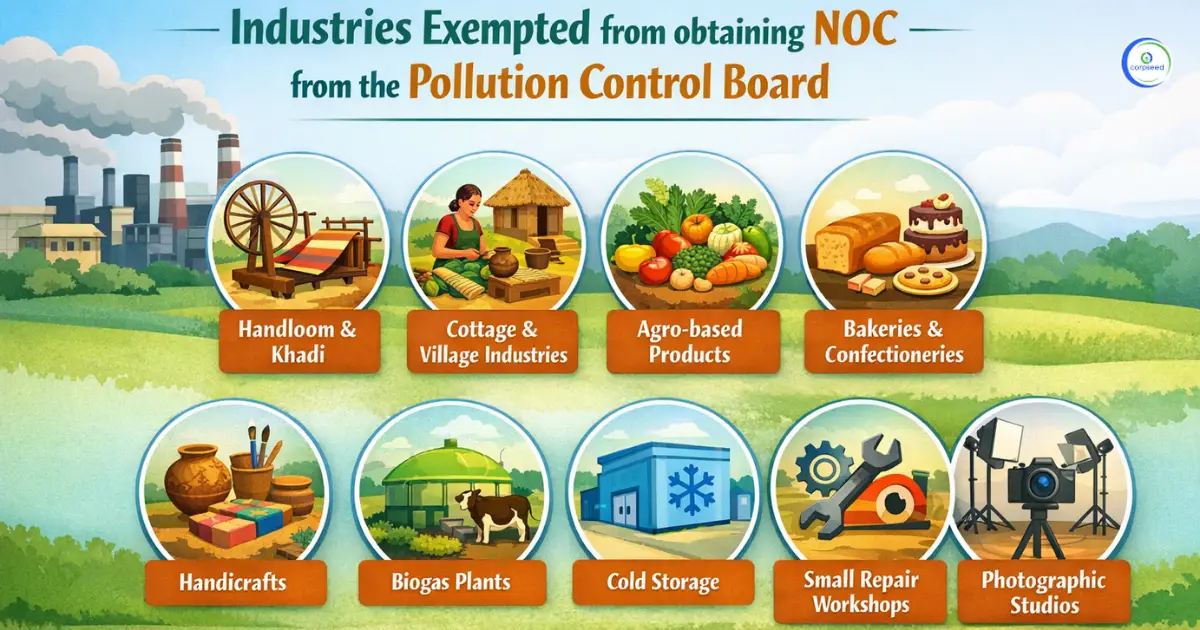
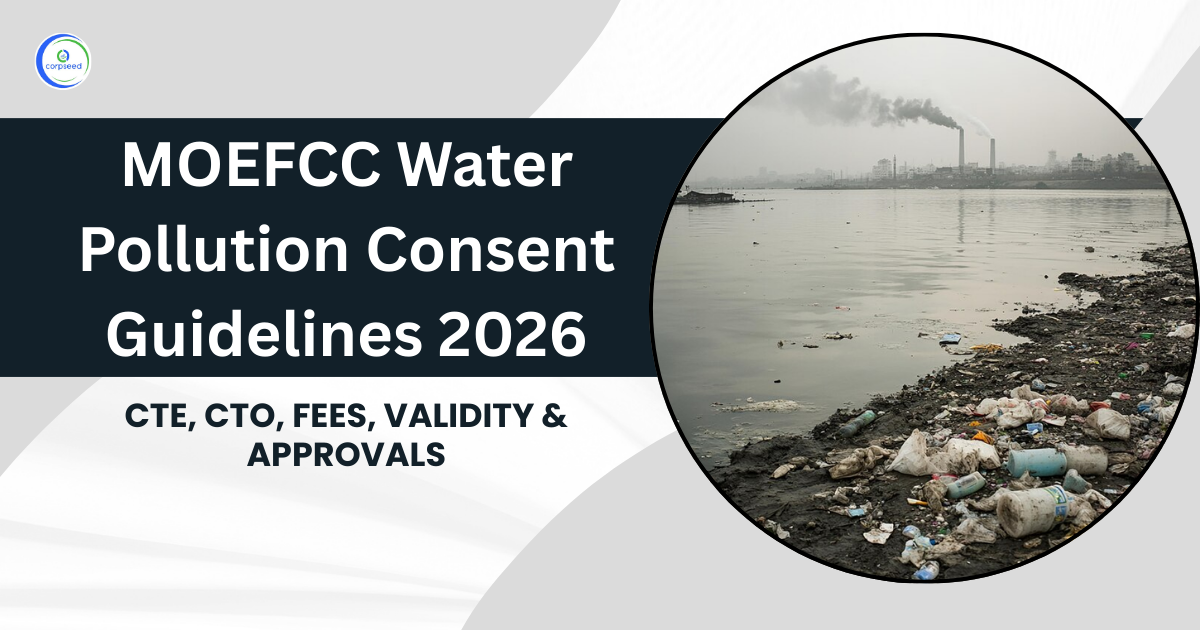
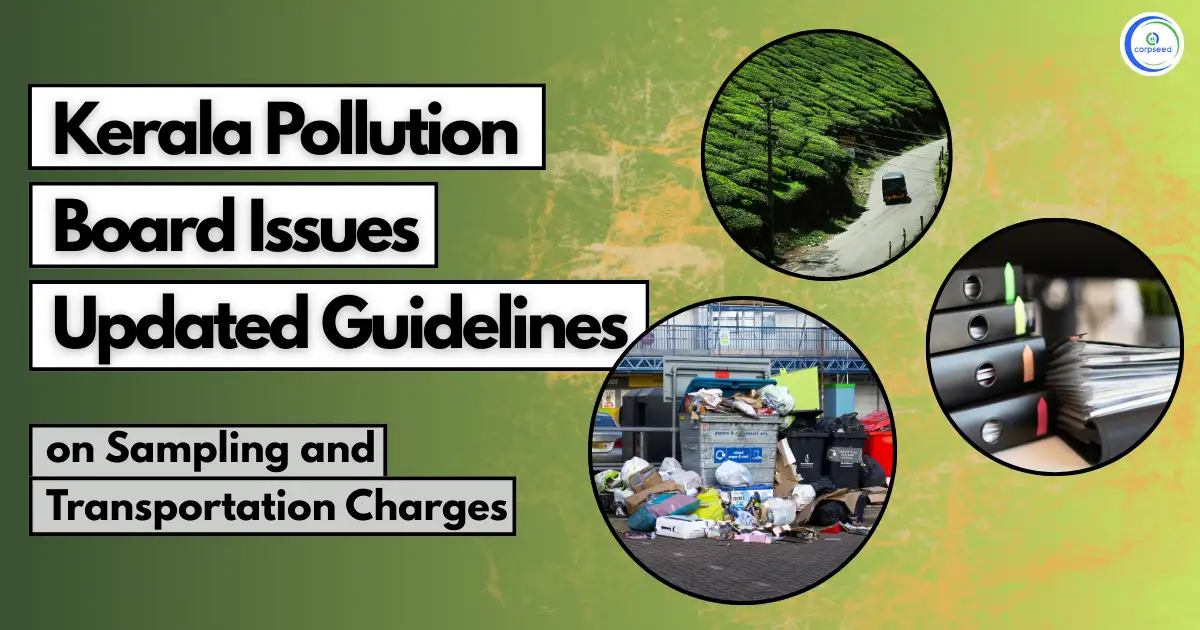
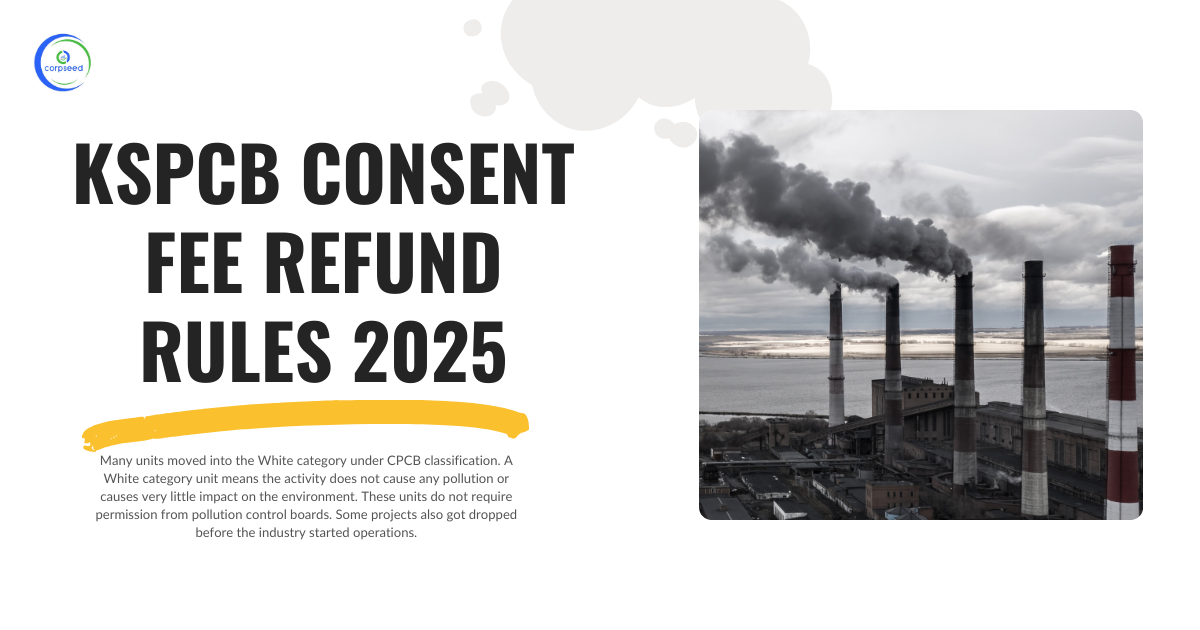
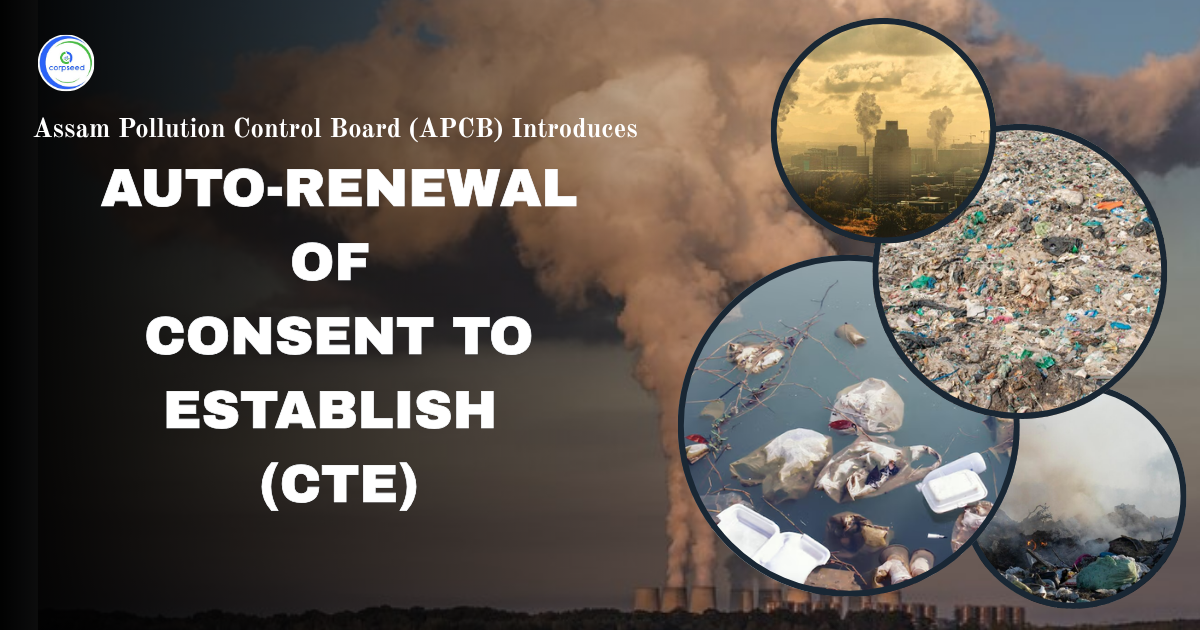

.webp)
